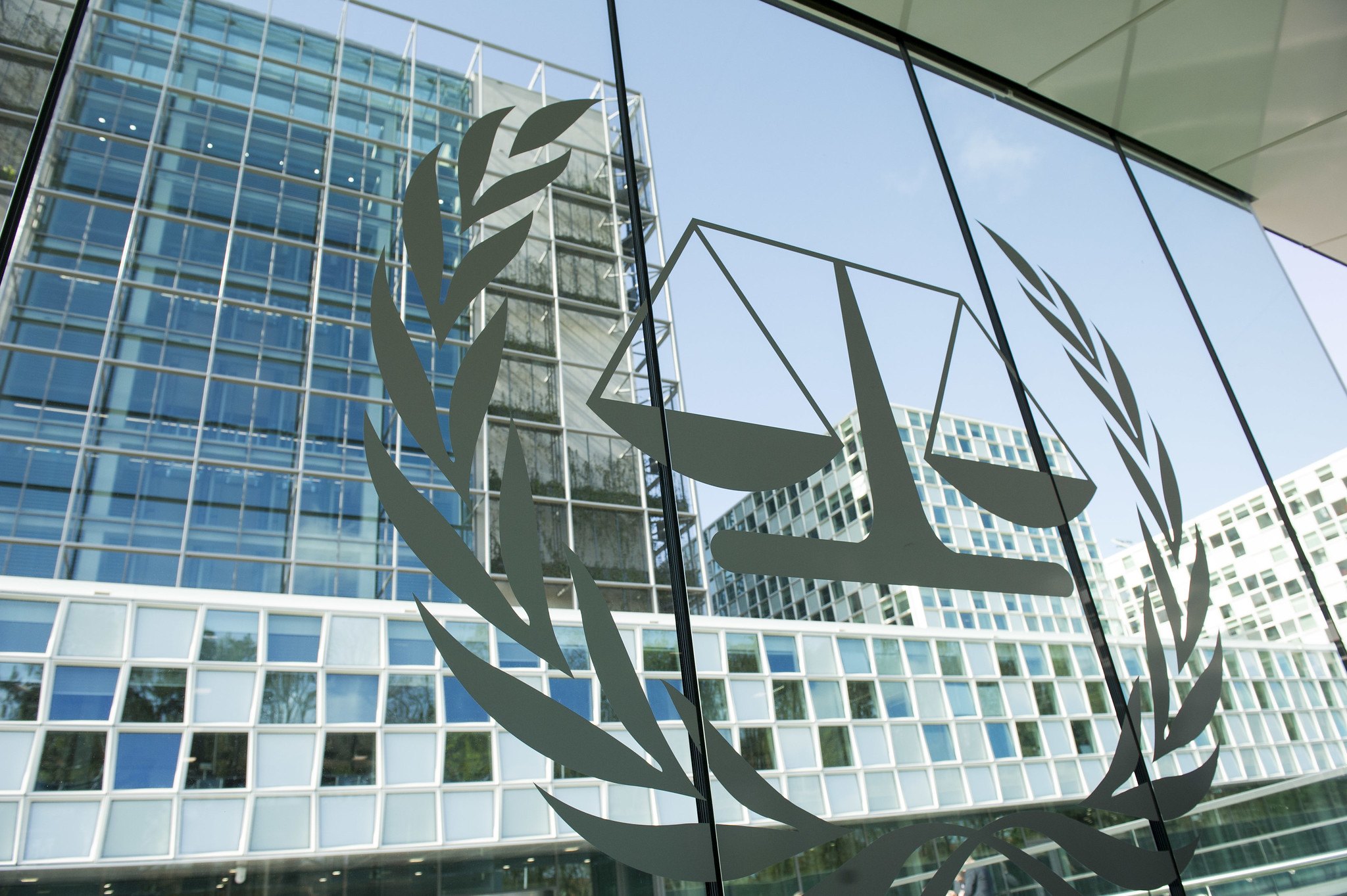Biden Issues Executive Orders on Chinese Companies and Apps
Lawfare’s biweekly roundup of U.S.-China technology policy and national security news.

Published by The Lawfare Institute
in Cooperation With

Biden Issues Executive Orders on Chinese Companies and Apps
On June 3, President Biden signed an executive order prohibiting Americans from investing in 59 Chinese companies with alleged links to the Chinese military. This latest move marks a significant expansion of Trump-era restrictions on investments in firms with similar ties. On June 9, Biden issued an order revoking the Trump administration’s TikTok and WeChat bans, in favor of a broader regime requiring scrutiny of all “connected software applications” linked to foreign adversaries.
Officials justified the first order by citing potential legal issues with the original investment ban, which was apparently drafted in haste, and additional concerns over China’s “military-industrial complex.” The new investment ban affects companies with products ranging from telecommunications and railways to semiconductors and satellites. Two key surveillance technology companies, Huawei and Hangzhou Hikvision Digital Technology, were included in the list of banned entities. Also on the list are Proven Glory Capital and Proven Honour Capital, which sell dollar bonds for Huawei to international investors; the ban will be a hit to Huawei’s finances.
The order comes into effect in August, and total divestment of assets is mandated by June 2022. More companies will be added to the list in coming months, according to the White House. Authority for enforcing and adding companies to the ban will shift from the Pentagon to the Treasury Department.
The second executive order, focused on “protecting Americans’ sensitive data,” repealed two Trump-era executive orders effectively banning WeChat and TikTok from operating in the United States. Instead, the new executive order replaced the bans with a more holistic framework for assessing the risk posed by software applications connected to China and other “foreign adversaries.” It also calls on a host of executive agencies to issue reports within 120 days on the recommendations to prevent harm from the unrestricted sale or transfer of, and access to, U.S. persons’ sensitive data. It gives the secretary of commerce the ongoing responsibility to evaluate any transactions involving “connected software applications” that pose a threat to U.S. national security.
Although the new executive order on sensitive data doesn’t target particular Chinese companies, it may enable the Biden administration to launch an even broader crackdown on foreign apps and social media platforms than Trump managed with his TikTok and WeChat bans. After those executive orders in August 2020, three separate federal courts issued nationwide injunctions on the bans. The new executive order issued by Biden seems more carefully tailored to survive judicial scrutiny.
In addition to Biden’s executive orders, Congress released a new report finding that the Commerce Department has failed to keep U.S. technology out of the hands of the Chinese military. The report argues for stricter scrutiny of sensitive U.S. technology exports and chastises the department for a two-year delay in publishing a list of technologies that must be subjected to heightened export controls.
The new ban comes shortly after the commerce ministry in China declared the resumption of “normal communications” with the United States, and U.S. Trade Representative Katherine Tai reportedly had “candid” talks with her People’s Republic of China (PRC) counterpart, Vice Premier Liu He. In a regularly scheduled press conference on June 4, the PRC Ministry of Foreign Affairs spokesperson condemned the ban’s expansion and promised that China will “take necessary measures to resolutely safeguard the legitimate rights and interests of Chinese companies.”
Huawei Launches New Operating System to Compete With Apple, Google
On June 2, Huawei launched its own operating system, HarmonyOS, to compete with Apple’s iOS and Google’s Android. Currently, Apple and Google hold a global duopoly on operating systems for mobile phones. However, because Apple does not license its iOS operating system to other smartphone manufacturers, Google is the only company to supply a mobile operating system, Android, that other hardware companies may license for installation on the phones they build and sell.
Huawei has been developing its own rival operating system since 2012 as a way to decrease its reliance on U.S. technology companies. But the new HarmonyOS was fast-tracked after the Trump administration prohibited U.S. companies from doing business with Huawei in May 2019. Under the Trump ban, which remains in force under President Biden, Google may not license its official version of the Android operating system or proprietary Google applications to Huawei. Thus, many of the Google apps that make Android popular, including Google Play Store, Gmail and Google Maps, could not be preinstalled on any Huawei phones. Installing these apps without access to the Google Play Store requires specialized technical knowledge, making Huawei’s phones unappealing to most consumers. Financial statements from 2020 show that Huawei’s worldwide sales of mobile phones dropped by 42 percent in the year following the U.S. ban.
While the company was hurting from the U.S. ban, Huawei began touting HarmonyOS as its answer to both U.S.-China decoupling and the allegedly anti-competitive behavior of Apple and Google in the realm of mobile operating systems. Huawei calls its HarmonyOS a “smart global operating system.” The operating system is initially launching only on smartwatches and tablets, although Huawei has plans to roll it out to mobile phones soon. The HarmonyOS’s tablet design appears to have heavily borrowed elements from both Android and Apple’s iOS but also implemented certain features from the Windows operating system.
HarmonyOS has received poor reviews from software developers who had an early look at the operating system (and had to pass a two-day background check and share their passport and credit card information with Huawei to gain access). Developers found the operating system was merely a “forked” version of Android, nearly identical to the version offered by Google. Google maintains a basic version of Android open-source, which anyone may spin off (“fork”) to serve as the basis for their own operating system. But Google uses contractual provisions to prevent new operating systems based on forked versions of Android from accessing proprietary apps like the Google Play Store.
The new Huawei operating system comes at a time when policymakers in the United States are pushing back against Google’s use of such contracts to sustain its monopoly power over licensable mobile operating systems. Huawei has indicated that it is willing to license HarmonyOS to other handset makers. If Huawei succeeds in establishing an alternative operating system, app store and app ecosystem, it may eventually end Apple and Google’s global duopoly over mobile operating systems.
Given the continued ban on Huawei, it seems unlikely that a new Huawei operating system will gain ground against Apple and Google in the United States anytime soon. But, in other parts of the world where Android is currently dominant, such as Africa, HarmonyOS may be poised to compete with Android.
Other News
Shenzhen Publishes Draft Privacy Regulation
The Shenzhen legislature has published for public feedback a new data privacy regulation, the first such local legislation in China. If passed, the regulation would recognize an ownership right in personal data and a right to “know, copy, correct, and delete” such data held online. The law would also forbid companies from profiling users under the age of 18, a provision that presents a challenge to businesses like Douyin (the Chinese version of TikTok), which have a very young user base and rely on their algorithms’ ability to tailor content recommendations to users’ personal profiles.
The draft local regulation shares some features with pending national laws that will regulate data collection and usage. For instance, the Shenzhen law would levy a $7.7 million fine against any company found in violation of the ban on algorithmic price discrimination. A similar provision is included in a recent draft of the Personal Information Protection Law (PIPL), released in April. The PIPL also limits the collection of minors’ data; requires channels for withdrawal of consent for data processing; and, in the event of a dispute, puts the burden on the data processor to prove compliance. A second draft of the PIPL was released for public comments alongside the draft Data Security Law (DSL) on April 29.
National laws on data—including the PIPL and DSL—are expected to be implemented later this year. Together with the Cybersecurity Law that came into effect in 2017, they are expected to create an “overarching framework” for digital consumer safety and digital national security. (The PIPL and DSL will likely limit cross-border data transfers, potentially affecting law enforcement investigations as well as a wide range of private enterprises.)
The local and national laws reflect the central government’s emphasis on digital data as essential individual and collective assets. Data was added as a fifth “factor of production” in a statement from the Central Committee and State Council last year, alongside land, labor, capital and technology. They also respond in part to the Chinese public’s concerns over data collection and privacy, which spiked in 2018 after a survey showed that 85 percent of Chinese citizens had had their personal data leaked.
The laws are written to apply to the central and local governments as well as private enterprises. It is not clear how they will be enforced against government bodies. Divergent enforcement of data privacy regulation—strict for the private sector, lax for the public—has been around for years.
Coronavirus Wuhan Lab-Leak Theory Regains Prominence
The theory that the novel coronavirus originated as a leak from a Wuhan laboratory has regained prominence recently, after President Biden called for the U.S. intelligence community to conduct a full investigation. On May 26, Biden gave intelligence agencies 90 days to report back on the possibility that the virus emerged from a laboratory leak, as well as the more widely accepted theory that it spread from an animal in Wuhan.
The call comes weeks after a team of World Health Organization (WHO) scientists published an inconclusive report on their investigation into the origins of the virus in Wuhan. Officials from more than a dozen countries, and the director-general of the WHO, stated publicly that the WHO report was not thorough enough. China, facing accusations that it had not provided sufficient access to the WHO investigators, instead called for a U.S. military-run biological lab to be the next target of a WHO investigation. (Conspiracy theories have circulated in China that U.S. military personnel originally carried the virus to Wuhan.)
In the wake of President Biden’s call for an investigation, a group of scientists have come forward to express their skepticism of the WHO team’s results from their investigation of Wuhan. The scientists believe the report is not credible enough to completely rule out the possibility that the virus emerged from a lab leak.
New Three-Child Policy Unpopular With Chinese Netizens
On May 31, China announced that couples would now be allowed to have three children, up from the existing limit of two. China abandoned its one-child policy in 2015, and the recent relaxation comes only a few weeks after China announced a population decline for the first time in 50 years.
On Chinese social media, however, many commenters weren’t enthusiastic about the change. One top comment under a Xinhua News report on the new policy, liked more than 80,000 times, said simply, “Bah!” According to many Chinese internet users, the change fails to address many of the underlying reasons why women are choosing to have fewer children. Commonly cited reasons include China’s intense “996” work culture, lack of maternity leave and workplace discrimination against pregnant women. Censors were quick to remove some of the negative comments on Chinese media coverage of the announcements.
Commentary
Eileen Guo reports for MIT Tech Review on China’s increasing crackdowns on dissenters both within and outside of China on the anniversary of the Tiananmen Square massacre.
Diana Li explores the future of remote work for young people in China for Sixth Tone.
Perspectives diverge on whether China’s crackdown on its own big tech companies is getting worse or coming to an end.
Shen Lu interviews a former Weibo censor on the realities of working within China’s censorship machine for Protocol.
Michael Callahan and Curtis J. Milhaupt write on the rule of law in the U.S.-China tech war in a volume prepared for the Center for Strategic and International Studies (CSIS). The authors argue for a more robust role for the United States in global data governance, greater transparency in Committee on Foreign Investment in the United States decisions, and better-coordinated international pressure on corporate governance of publicly traded Chinese companies.
Manoj Harjani considers how Southeast Asia will be affected by U.S.-China tech decoupling.
Laura Grunberg discusses how Chinese tech start-ups are now beginning to set their sights on global audiences and consumer bases rather than sticking to their domestic markets.
Cheng Li, writing for the Brookings Institution, looks back on President Biden’s approach to China during his first 100 days in office, assessing whether Biden’s coalition-building approach has been successful or is simply driving China closer to U.S. adversaries such as Iran and Russia.






